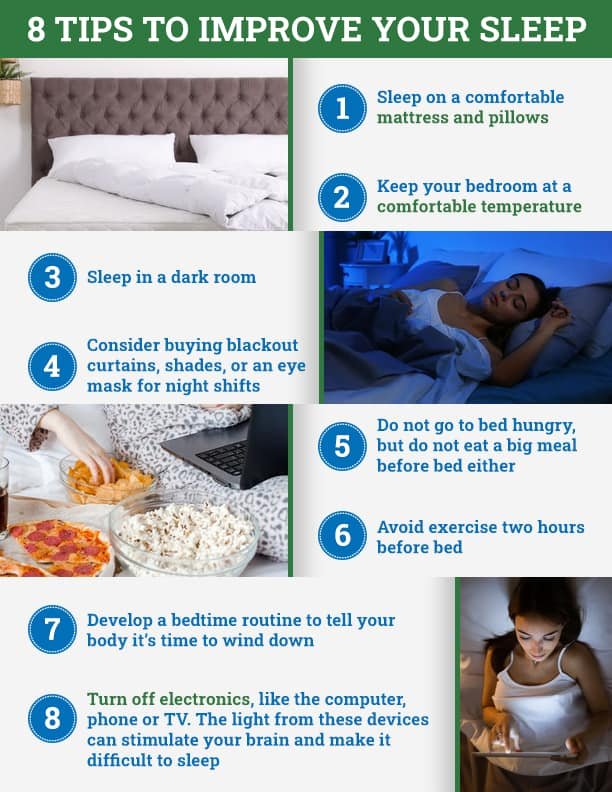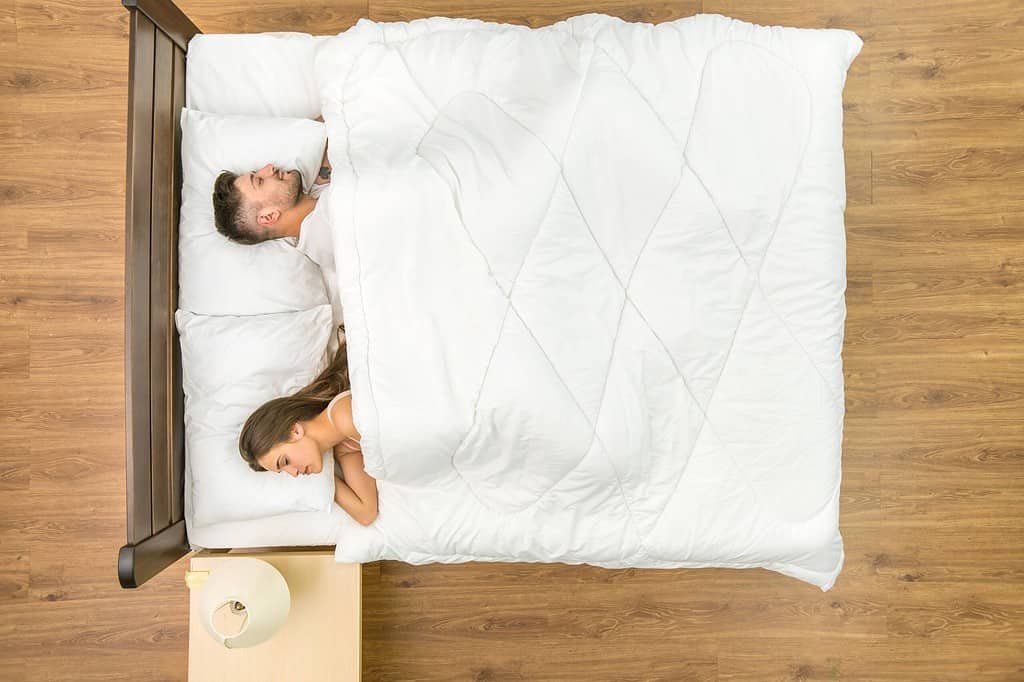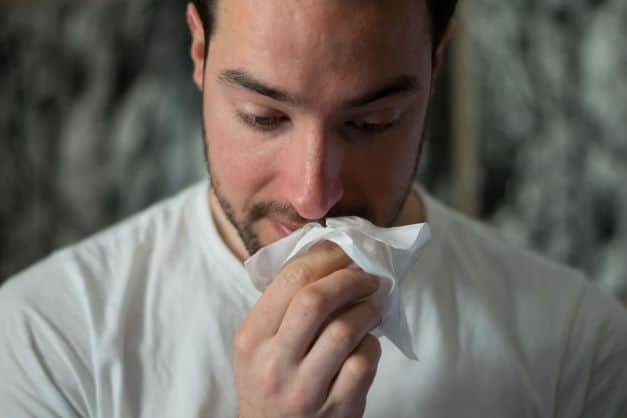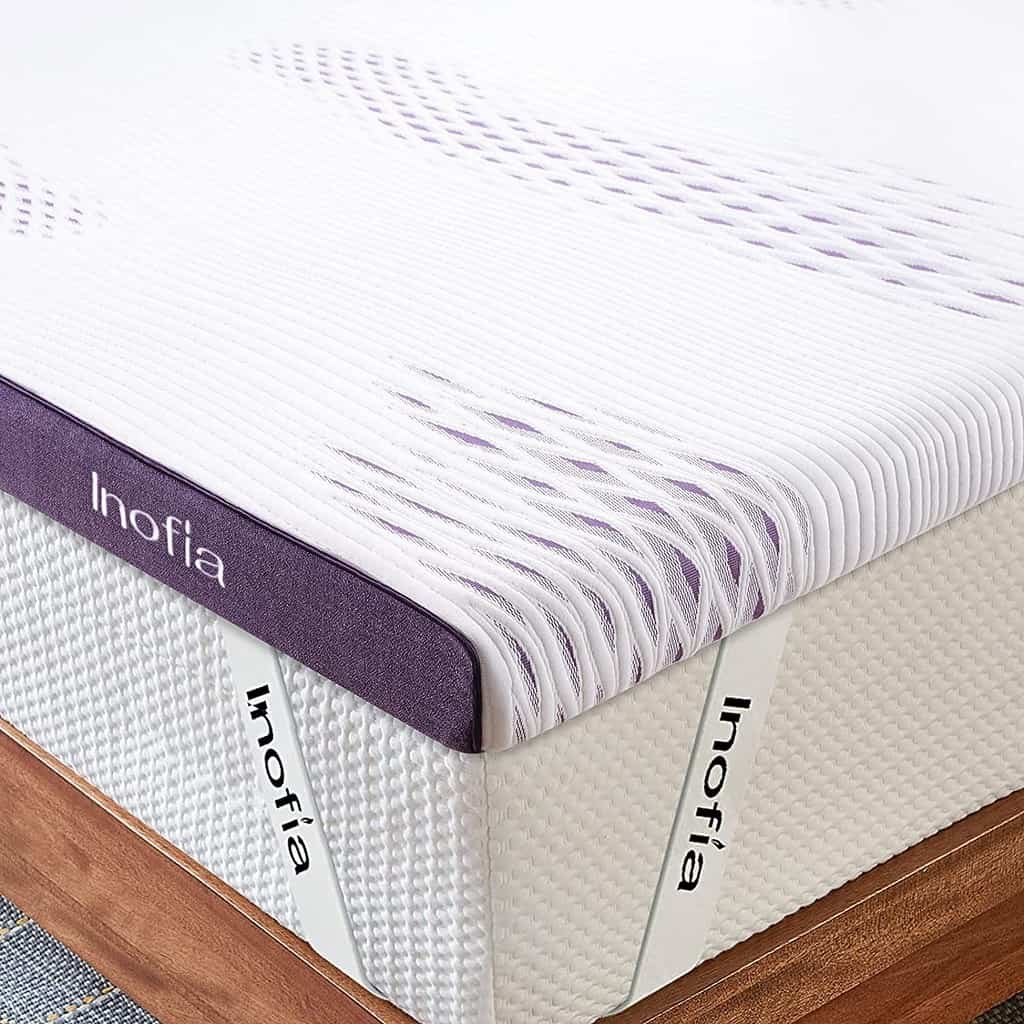8 Tips To Improve Your Sleep
Improving your sleep is one of the most important things you can do for your health. If you don’t get enough sleep, it can take a toll on your physical and mental health. The problem that many people have is that they don’t know how to improve their sleep. Every night, we all go through different sleep cycles. These sleep cycles are made up of different stages of sleep. The first stage is light sleep, followed by deep sleep, and then REM sleep. These tips help you get better quality sleep.
8 Tips to Help You Sleep Better
1. Sleep on a comfortable mattress and pillows
The comfort of your pillow and mattress dramatically impacts the quality of your sleep. To get a good night’s sleep, you must be comfortable. A mattress should be firm enough to support your back but soft enough to cushion pressure points. A pillow must keep your head and neck in a natural position so that they are not at an angle relative to the rest of the body. If you have neck or back problems, it may be helpful to consult with a chiropractor or therapist before selecting the proper type of pillow and mattress. A high-quality mattress and pillow can make a big difference in the quality of your sleep. The investment doesn’t have to be big, but the payoffs can be massive.
2. Keep your bedroom at a comfortable temperature
According to the National Sleep Foundation, the ideal temperature for most people is between 65 and 70 degrees. Experiment to find a comfortable room temperature that works for your body type, and then keep it consistent every night—the more regular patterns you have around sleep time (like keeping your room at a cool-ish 68), the easier it’ll be for you to fall asleep when it’s time. In general, the slightly cooler air in your bedroom will help you fall asleep by mirroring your body’s natural drop in temperature while you drift off. That said, if you get cold quickly, consider warming up with wool socks or extra blankets instead of cranking up the heat (since being too hot is worse than being too cold when it comes to sleep). Try to keep your bedroom at a constant temperature throughout the year. This will help improve your sleep quality by regulating your body temperature.
3. Sleep in a dark room
Sleep in a dark room. Your body’s circadian rhythm dramatically affects your ability to fall asleep and stay asleep. The circadian rhythm is your body’s internal clock running in the background of your brain and cycles between sleepiness and alertness at regular intervals. One way to keep your circadian rhythm healthy is by keeping a regular sleep schedule, but another way is by ensuring you sleep in a dark room at night. Darkness triggers the production of melatonin, which helps you fall asleep, while light exposure suppresses its production and keeps you awake. Even small amounts of light can disrupt your circadian rhythm and impact the quality of your sleep, so get rid of all lights before bedtime, including night lights.
By understanding your circadian rhythm and how light affects it, you can take steps to ensure you are getting quality sleep by sleeping in a dark room. It’s no myth that light exposure can impact the quality of your sleep, so make sure to keep your bedroom dark at night.
4. Consider buying blackout curtains, shades, or an eye mask for night shifts
Using blackout curtains, shades, and even eye masks can help with difficulty falling asleep and staying asleep. Blackout curtains are perfect if your bedroom is exposed to a lot of sunlight in the morning or you work night shifts. An eye mask is helpful if it’s very bright in your bedroom when you need to sleep during the day or in your hotel room when travelling across time zones. A popular choice nowadays is a CPAP mask, which is effective for people with obstructive sleep apnea (OSA). So take advantage of these tools to improve your quality of sleep! You’re trying to remove as many light sources from your bedroom as possible. This includes using blackout curtains, shades, or an eye mask to cover your eyes.
5. Do not go to bed hungry, but do not eat a big meal before bed either
As a general rule, don’t go to bed hungry. If you’re hungry, your body will work overtime to digest and metabolize the food, which is not conducive to restful sleep. Conversely, eating a large meal close to bedtime can hurt your sleep because of indigestion or heartburn. It’s best to avoid heavy meals at night, but try something low in fat and protein if you want a snack before bed. Avoid spicy or acidic foods, too, as these can trigger acid reflux. It would be best if you ate at the same time every day to avoid getting into the habit of eating before bedtime. Suppose you can try to eat at the same time every day. This will help train your body to expect food at certain times and avoid getting into the habit of eating before bedtime. It’s also essential to avoid drinking caffeine late in the day as it can stay in your system for up to six hours and make it harder to fall asleep.
Avoid drinking alcohol before bed too. You might think that a nightcap will help you sleep, but alcohol disrupts your sleep cycle and prevents you from reaching deep REM sleep.
6. Avoid exercise two hours before bed
When you exercise, your body temperature increases. For your body to cool down and fall asleep, it needs at least a two-hour window before bedtime—so put away the dumbbells and take your dog for a walk in the afternoon instead of in the evening. Exercising also releases endorphins, hormones that can make it harder to fall asleep if you do them too close to bedtime. That’s why it’s best to fit your workout in earlier in the day instead of racking up those miles on a treadmill right before hitting the hay.
7. Develop a bedtime routine to tell your body it’s time to wind down
Creating a bedtime routine is one of the best ways to signal your brain that it’s time to wind down for the day. Getting ready for bed will help you relax and remember it’s time to sleep. It might include brushing your teeth, washing your face, listening to music, or reading a book. Remember that when you’re trying to fall asleep, it’s better to get out of bed if you’re not asleep after 15 minutes than toss and turn in frustration. Go back when you’re sleepy!
In addition, keep in mind that long naps during the day can also make it harder to fall asleep at night. Afternoons are usually an OK time for a quick catnap (20-30 minutes), but try not to nap later than 3 p.m. because your body won’t want to go back into slumber mode at night.
8. Turn off electronics, like the computer, phone or TV
The light from these devices can stimulate your brain and make sleeping difficult. Turn off the computer, phone, or TV at least 30 minutes before bed. The light from these devices stimulates your brain and makes it difficult to wind down at night. If you must use your phone as an alarm clock, turn it face down so that the light from the screen doesn’t bother you and turn off notifications so that alerts don’t wake you up. You can also try using a sunrise simulator, which gradually turns on a light in your bedroom about 30 minutes before your alarm goes off, helping to mimic the rising sun and gently wake you up.
By gradually getting your body used to the change in light, you can make it easier to wake up and feel more alert in the morning. You’ll also not need coffee or another energy drink to get going.

Try these 7 tips for getting better sleep!
If you’re having trouble sleeping, there are a few things you can try to help you get a better night’s rest. Blackout curtains, an eye mask, noise-cancelling headphones, or a white noise machine can help you create a dark, quiet environment for sleep. Avoiding caffeine and alcohol before bedtime can also help you sleep better. And finally, try to establish a regular sleep schedule by going to bed and waking up at the same time each day.
The amount of sleep you get daily is significant, but sleep quality is just as essential for your health. The most important thing you can do to get better sleep is to establish a regular sleep schedule and stick to it as much as possible. Creating a bedtime routine can also help you sleep better by signalling your body that it’s time to write down for the day.



